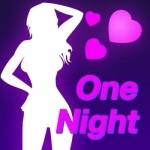
MD on Call - Practical Guide 2017-18
Medical and Education
App
"MD On Call is a fantastic app for junior doctors and residents who want a handy safety net for when...

Biomedical Engineering (BME): 2200Study Notes & Quiz
Medical and Education
App
This is a Combination of sets, containing practice questions and study cards for BME preparation. ...

Food & Drink Carb Counter for Diabetics (Diabetes)
Medical and Health & Fitness
App
Managing meals as a diabetic can be hard and frustrating at times. No longer, if you can make use of...

Breaking Up is Hard to Do: Britain and Europe's Dysfunctional Relationship
Book
The authors of this book were asked to examine the issue of Britain leaving the EU and determine,...

CAD To Go - create and edit DWG/DXF files
Business and Games
App
This best completely redefines CAD with top notch features: Input/Output: - Seamless DWG/DXF...

Skateboard Party 3 Pro
Games and Sports
App
Skateboard Party is back! This third edition of the popular sports franchise features professional...

One Night Stand - Adult Hook up Tonight
Lifestyle and Social Networking
App
One Night Stand is looking for someone who wanna find a dating with top hot singles and love...

Dating DNA Plus
Dating, Entertainment and Social Networking
App
Dating DNA is the #1 dating app in the iTunes store with 100% FREE SERVICE. NO Monthly Fees! NO...

Lost - Season 1
TV Season Watch
Oceanic Air flight 815 tore apart in mid-air and crashed on a Pacific island, leaving 48 passengers...
